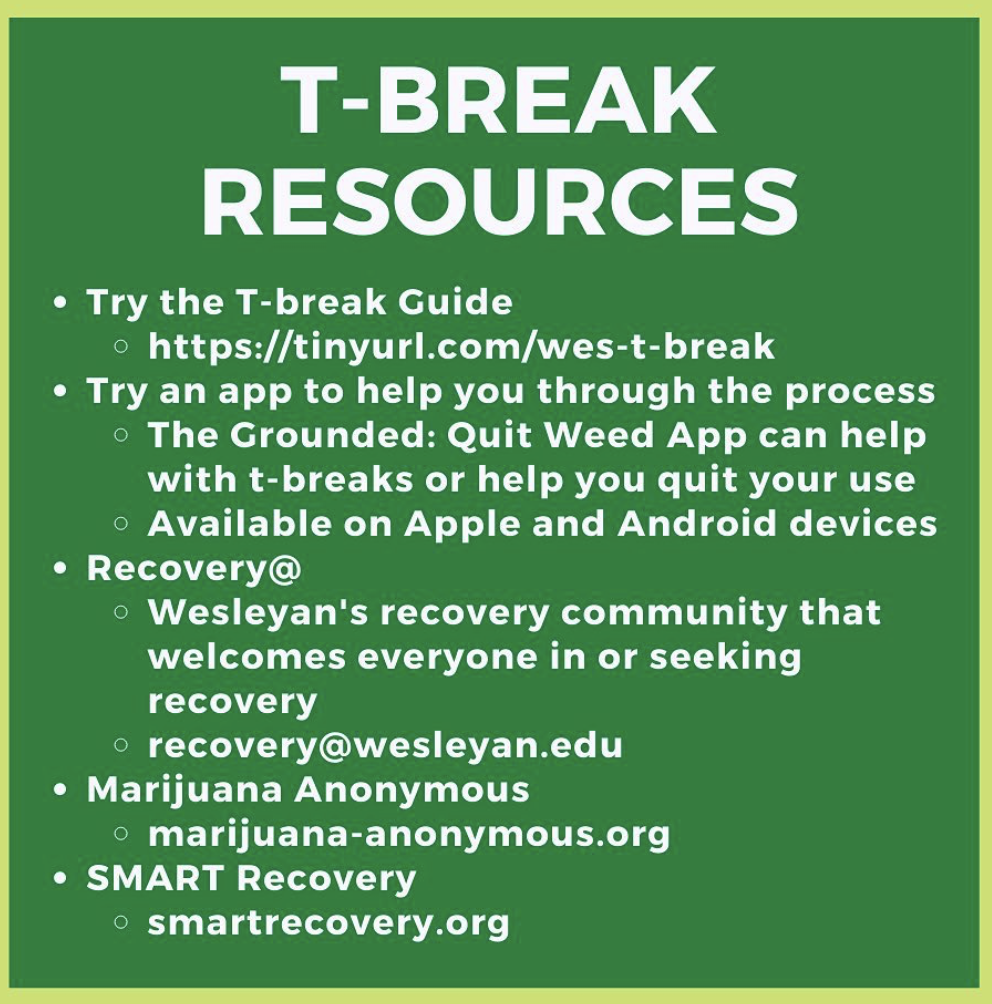
Connecticut legalized recreational marijuana for adults ages 21 and over on July 1, 2021, and medical marijuana for adults age 18 and over on Oct. 1. However, the legalization does not extend to college campuses such as Wesleyan. Dean of Students Rick Culliton clarified Wesleyan’s marijuana policy in an all-campus email on Sept. 29.
The legalization of recreational marijuana use in Connecticut came after years of gradual decriminalization. Current guidelines permit residents to openly carry 1.5 ounces of marijuana and store an additional 5 ounces in a locked container. Edible and vape products must have an equal or lesser amount of THC.
However, as Dean Culliton reminded students in his email, marijuana remains a federally prohibited drug under the Controlled Substances Act (CSA) and is prohibited on the University’s campus. Use and possession by students or employees can result in disciplinary action.
“The federal Drug-Free Workplace Act and the Federal Drug-Free Schools and Communities Act both continue to prohibit marijuana and other illicit drugs as a condition of Wesleyan receiving federal funds for financial aid, research, etc.” Culliton wrote. “Use and possession of any kind is not allowed and it is not considered a reasonable accommodation under the ADA for students with disabilities.”
Culliton explained that he sent out the email because it became clear to the University administration that not everyone was aware that the change in state law still prohibits the possession and use of marijuana on college campuses. He encouraged students to contact the Davison Health Center, WesWell, CAPS, or their own medical providers to explore marijuana alternatives.

WesWell Alcohol and Other Drug Specialist September Johnson explained that, if and when students do decide to use cannabis, they need to be cautious about where they get their information from.
“Because cannabis is a schedule 1 drug it has been harder to study and get data,” Johnson wrote in an email to The Argus. “Websites like Leafly have the main goal of selling consumers their product so they may pick and choose their information or not have science backed information. This is an important thing to keep in mind if you are looking for any drug, health, or wellness information online.”
Johnson also emphasized that she can be a resource for anyone struggling with marijuana use.
“I am always happy to meet with students to answer questions, create harm reduction plans or just chat regarding these topics,” Johnson wrote. “If students would rather ask a question(s) anonymously, they can submit their question online and we will answer your questions via social media. You can see the responses to the questions on Instagram @Wes.Well.”
Hannah Docter-Loeb can be reached at hdocterloeb@wesleyan.edu.



Leave a Reply